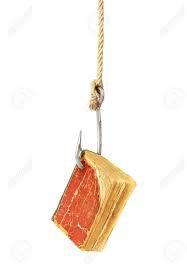What does Science Fiction Mean?
- Author Bruce Shields

- Feb 6, 2021
- 4 min read
What are the elements of science fiction? What are some good science fiction books? What was the first science fiction novel?

What is science fiction?
When I first started writing at a young age, around eight or so, I wrote horror. I wanted to scare people. Why? Because some of the greatest stories I ever heard were from Alfred Hitchcock and my grandfather. The scariest were the ones that left questions unanswered. Those were the best.
In third grade, my teacher, Mr. Coggins, read to us in class. James and the Giant Peach was one of my favorites. One day he decided, if anyone wanted to write and read a short story, they could.
My friend Matt, who is now a radio personality in Indiana, wrote Soupy Sales type of scripts that we would act out. Eventually, I got the nerve to write something and wrote a few horror stories.
After a few weeks, I wrote something resembling a Lost in Space episode, and it was a hit. The teacher told me it was very creative and exciting, and he preferred it over the running around screaming of Soupy Sales or the scare the kids so they won't use the restroom down the hall stories from previous weeks.

I always loved science fiction, Star Trek, Space 1999 (by the way, I have spoken with Pamela Rose many times, and she gave me a few signed photographs. She was my favorite on the show, and she was also in Star Wars). However, science fiction is more than laser guns and aliens.
Science Fiction is a genre, and within that genre, there are many types. It usually deals with science and technology, space exploration, time travel, parallel universes, aliens.
One of my favorite science fiction books is by H. G. Wells, The Time Machine. I have read that one so many times I had to purchase another copy.
The science fiction genre is close to fantasy, horror, or superhero stories but different enough to have a category separate from them.

Another inspirational science fiction author I love is Isaac Asimov. Robots of Dawn, iRobot, and so many others.
Remember, Isaac Asimov, invented The Three Laws of Robotics. Genius!
A robot may not injure a human being or, through inaction, allow a human being to come to harm.
A robot must obey orders given by human beings except where such orders would conflict with the First Law.
A robot must protect its own existence as long as such protection does not conflict with the First or Second Law.

The Arabian Nights contain some science fiction stories. I once had a fourth edition leather bound Arabian Nights. I wish I had never sold it.
So, here I was, watching Space 1999, Star Trek, Lost in Space, and then Star Wars was released. I was hooked for life.
In junior high, I began reading Asimov, Wells, Swift, then shows like In Search of with Leonard Nimoy, Cosmos with Carl Sagan, Land of the Lost, etc.
In high school, I read some great books as well, some that blurred the lines between science fiction and fantasy, which I thought was terrific! Piers Anthony did this in a few of his series.
So science fiction can be about outer space, inner space, time travel, other dimensions. It covers a gambit of topics while remaining true to the genre.
Here are some of my favorites from books, film, and TV.

BOOKS

MOVIES

TELEVISION
Doctor Who (the longest-running science fiction television series ever)
Because science fiction has so many types among its genre, sub-categories have been created to help sort it all out.
Science Fiction
Alien Invasion
Alternate History
Alternate/Parallel Universe
Apocalyptic/Post-Apocalyptic
Artificial Intelligence
Colonization
Cyberpunk
Dying Earth
Dystopian
First Contact
Galactic Empire
Hard Science Fiction
Human Development / Evolution
Immortality
Military Science Fiction
Mind Uploading
Mutants
Mythic Fiction
Nanotechnology
Near-Future
Robots/Androids
Science Fantasy
Soft Science Fiction
Space Exploration
Space Opera
Steampunk
Terraforming
Time Travel
Utopia
Virtual Reality
I think we can all immediately name a book, television show, or movie for each of these!
When one asks, "What is science fiction?" this should give a good definition with a little extra for good measure.
I could have listed so many more books, shows, and movies I have watched over the years, all of which, in one way or another, have influenced my science fiction writing.
One of the questions I was asked the other day in my 50 questions for an Author was, is there anything hidden in your novels? I answered yes, there are many 'nods" and hidden things within my books, most there by design, but some I did not realize until after reading my novels multiple times.
I could share them, but I am not sure I want to. Perhaps these hidden gems will be for the real science fiction fans to find? Maybe, someone will be reading a Pandemic Dawn book and say to themselves, "Hey, that character's name is a nod to Planet of the Apes!" oh, maybe I've said too much.




Comments